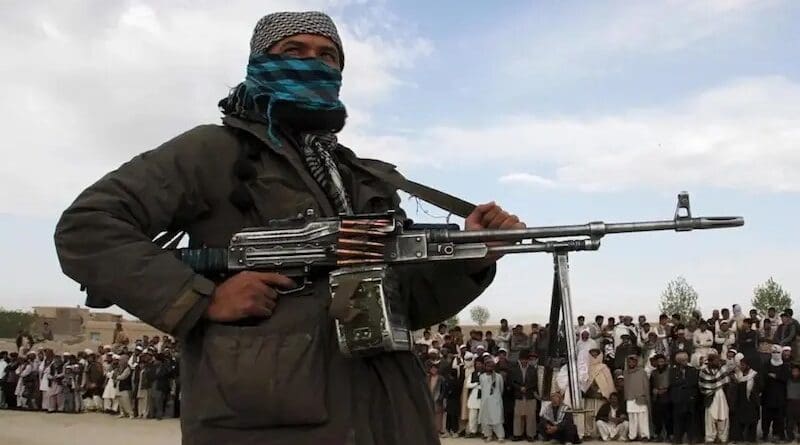TTPs Growing Menace In Pakistan: Remembering APS Peshawar Tragedy – OpEd
In memory of the martyrs of the Army Public School (APS) Peshawar attack on December 16, 2014, an event was recently held outside the Hyderabad Press Club by the Istiqlal Pakistan Organization. As candles flickered and prayers were offered, the nation once again felt the pangs of grief for the innocent children, teachers, and staff who lost their lives in the horrific act of terror. It has been eight years since that fateful day, but the memory of the APS tragedy is still alive in our hearts.
Najamuddin Qureshi, Senior Vice President of the Hyderabad Chamber of Commerce and Industry, expressed the collective sorrow, emphasizing that the martyrs of APS Peshawar remain alive in our hearts. Ahsan Naghar, Chairman of Istiqlal Pakistan Organization, recalled the bloodstained day when the Pakistani nation vowed to eliminate terrorists from the country. He highlighted that the war against the perpetrators of the APS attack and those sharing their mindset is an ongoing struggle.
However, as we remember the APS tragedy, it is essential to acknowledge the current surge in terrorist attacks in Pakistan, largely fueled by safe havens in Afghanistan. To illustrate this, let’s delve into a fictional narrative that mirrors the reality of how individuals like Asad can be misled into joining extremist groups like the Tehrik-i-Taliban Pakistan (TTP). Asad, a young and impoverished man from a remote region of Pakistan, is enticed into the ranks of the TTP with promises of sustenance, revenue, and the opportunity to engage in acts of so-called jihad. Trained extensively in Afghanistan, he learns the use of explosives, propaganda, and firearms. However, Asad soon realizes that the TTP’s leaders are dishonest, selfish, and deceitful. They make deals with other extremist groups, causing pain and despair among their own followers. Asad becomes disenchanted, realizing that the TTP is more of a problem than a solution.
This fictional story reflects the real dynamics of how individuals are lured into the folds of terrorist organizations. The TTP, which follows al-Qaeda’s doctrine, poses a significant threat to the peace and security of Pakistan. Their leaders operate with impunity from safe havens in Afghanistan, while their foot soldiers bear the brunt of futile conflicts in Pakistan. The surge in terrorist attacks in Pakistan can be directly linked to the TTP’s activities, which extend beyond borders. The TTP’s lack of concern for decisions like the Safe Haven Understanding (SHU) highlights their refusal to lead a jihad within Pakistan. Instead, they use the country as a recruiting ground and attempt to sever ties between the intra-Afghan government (IAG) and Pakistan.
The TTP’s leadership, based in the safety of Afghanistan, orchestrates the manipulation of enlisted men for financial gain and political influence. They instigate infighting among their own ranks to maintain control, while their superiors and families remain inactive. The TTP’s conduct reveals a complete disregard for Islamic social, moral, and religious norms, as they serve as proxies for foreign leaders, accepting financial backing in exchange for the slaughter of Muslim citizens in Pakistan. Baitullah Mehsud, the founder of the TTP, established this clan-based terrorist organization in 2007. The TTP leaders, including Hafiz Gul Bahadur, Aleem Khan Khushali, Muhammad Khurasani, Muzahim, Omar Khalid Khorasani, and Noor Wali Mehsud, have embraced immoral and unethical practices, perpetuating acts of religious manipulation, sectarian carnage, suicide bombings, and assassinations.
While the Pakistani government and its people have supported military operations against the TTP, the group continues to threaten and attack. Their audacious targeting of schools, as seen in the massacre at Bacha Khan University in Charsadda, underscores their disregard for the sanctity of educational institutions. The recent surge in terrorist attacks in Pakistan, influenced by the TTP’s activities emanating from Afghanistan, calls for a renewed commitment to counterterrorism efforts. It is crucial to expose and counter the true motivations and activities of the TTP, safeguarding the nation’s security and fostering a future free from the shadows of terrorism.
In conclusion, as we commemorate the APS tragedy, let it serve as a reminder of the ongoing battle against terrorism in Pakistan. The surge in attacks necessitates a comprehensive strategy, addressing not only the symptoms but also the root causes, including the safe havens across the border. The sacrifice of the APS martyrs should galvanize our collective resolve to rid our nation of the menace of terrorism and build a future marked by peace, unity, and prosperity.

